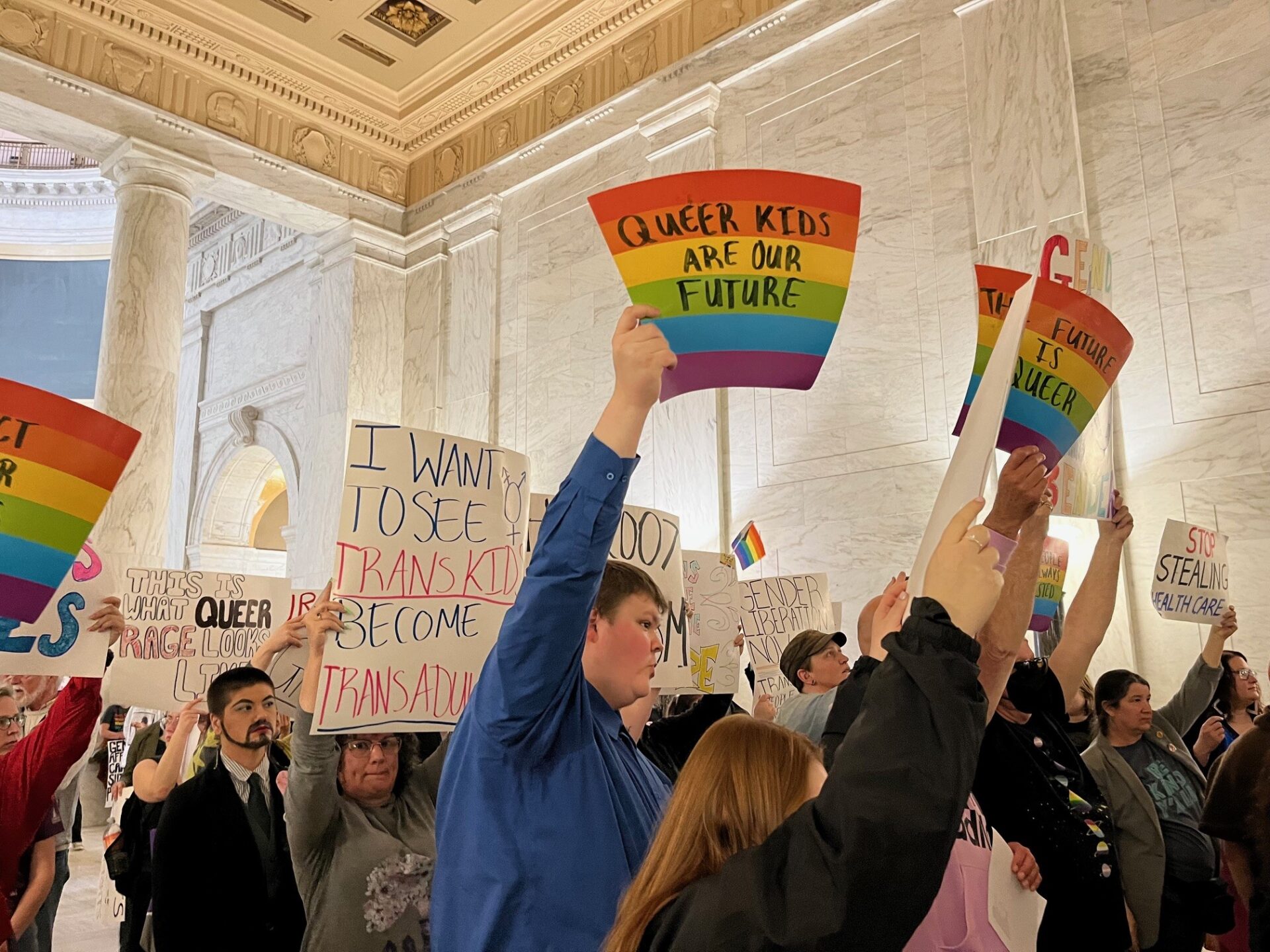On Friday, West Virginia Attorney General Patrick Morrisey continued to defend the state’s law barring transgender athletes from participating on sports teams that align with their gender identity.
West Virginia Attorney General Patrick Morrisey presented arguments Friday to the Fourth U.S. Circuit Court of Appeals in Richmond, Virginia in a case challenging West Virginia’s law barring transgender athletes from participating on sports teams that align with their gender identity.
In 2021, the West Virginia Legislature enacted a law “to defend the integrity of women’s sports” that prohibits transgender girls and women in the state from competing on sports teams at “any public secondary school or state institution of higher education.”
The bill was signed into law by Gov. Jim Justice on April 28, 2021.
The American Civil Liberties Union, the ACLU of West Virginia, Lambda Legal, and Cooley LLP challenged the law on May 8, 2021, on behalf of Becky Pepper Jackson, a now 13-year-old middle school transgender girl who would be kicked off her middle school’s girls’ cross country and track and field teams if the law were enforced.
Since then, Morrisey’s office has fought to dismiss the lawsuit.
Morrisey was assisted by attorneys from Alliance Defending Freedom (ADF), a Christian conservative legal organization, in filing this litigation.
In January, a federal judge in the U.S. District Court for the Southern District of West Virginia upheld the law, ruling that the state legislature’s definition of “girl” and “woman” in the context of HB 3293, the “Save Women’s Sports Act,” is “constitutionally permissible” and that the law complies with Title IX.
Title IX was signed into law on June 23, 1972. It prohibits sex-based discrimination in any school or any other education program that receives funding from the federal government.
Morrisey said the law protects female athletes’ safety and keeps female sports competitive for female athletes, consistent with Title IX and the Constitution.
Jackson’s legal team won a ruling from the lower court blocking enforcement of the law pending final resolution of the case. In February 2023, the U.S. Court of Appeals and the Fourth Circuit blocked the state’s effort to kick Jackson off the team as her legal team appealed the lower court’s subsequent ruling upholding the 2021 law.
In August of this year, the Fourth Circuit reinstated a preliminary injunction that allowed Jackson to continue participating on girls’ sports teams until it rules on her appeal.
The Attorney General’s Office contends that Title IX doesn’t mention transgender status. Instead, the marker is biological sex, which recognizes that there are distinct differences between males and females. Further, Title IX prohibits discrimination on the basis of biological sex, not gender identity.
“Look, I’m very hopeful that we’re going to prevail on the Fourth Circuit,” Morrisey said in a recorded statement. “I think we’re absolutely correct on the law. The district court got it right. And to us, it’s a matter of basic fairness and common sense that biological males should not be playing sports with women. We submitted 3,000 pages; 500 docket entries. This should be so straightforward. I’m hopeful the Fourth Circuit sees our way after these arguments.”
West Virginia is one of 23 states that have banned transgender girls from playing on girls’ teams in the last three years.
